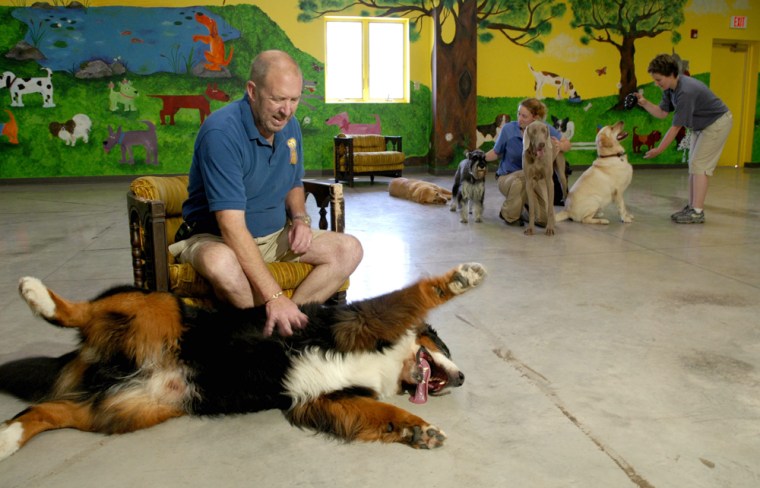Many people dream of taking a hobby and turning it into a successful small business, and many entrepreneurs are lucky and savvy enough to make it happen. But profiting from a passion still takes hard work, and hobbyists-turned-business owners often find they spend more time running the company than enjoying a pastime.
Elaine Hodgson started out as a biochemist, working for NASA and private companies for about four years. In her spare time, she played video games and found herself increasingly drawn to the idea of creating them. So she took some courses in programming that enabled her to start working for small companies that manufactured games.
In 1985, Hodgson and her then-husband Larry started their own video game business, Incredible Technologies; it now has $60 million in sales. Based in Arlington Heights, Ill., the company is best known for an arcade game called Golden Tee Golf.
But as the company became increasingly successful, Hodgson found herself doing less and less of the programming of games that she loved. She now has a staff of programmers.
“My career changed to be in sales,” Hodgson said. “We grew, and I became more of a manager.”
That doesn’t mean she’s unhappy. As CEO, she has a bigger impact than she would by programming: “You get more done.”
Cooking up a business
Julia Shanks, whose love was cooking, found that she had to learn how to be a businesswoman in order to succeed in her hobby-turned-business.
After studying aviation psychology in college, she went to work for the Federal Aviation Administration. She was in the process of applying for a job at Pan American Airways when she realized the night before the interview that she was heading in the wrong direction. A week later, she made the decision, “I’m going to cooking school.”
In 1997, she started Interactive Cuisine, preparing restaurant-style meals for clients in their homes while also teaching them cooking skills. But building the company was harder than Shanks first expected.
“I put a figurative ‘open’ sign out and I figured people would call, and nobody called,” she said. “You realize, I need to do something.”
Shanks’ next move was to take a class in the basics of running a business. She marketed the business and it became so popular that she was approached by a company that wanted her to run corporate team-building events based on cooking. That aspect of her business took off, and Shanks continued to build the company while getting an MBA — and found she was more focused on running the company rather than cooking.
“Somewhere along the line, there was a transformation from being a chef to being a businesswoman,” Shanks said, saying the title of businesswoman was the last role she expected to end up in when she first thought of cooking for a living.
Shanks is now doing corporate team building events for a company called Sebastian’s Interactive Test Kitchen.
From computers to canines
Hank Miller had a different path, turning his hobby into a business after having worked in information technology for decades. Miller, who worked with computers and telecommunications systems in the Navy, the University of Rochester and Xerox Corp., left Xerox at the end of 2002 at the age of 55.
He went through outplacement counseling and was “looking for a job that didn’t exist. I finally said, this is ridiculous, and I talked to my wife and said, ‘let’s start a business.”’
The business was Boom Towne Canine Center, which offers services for dogs including training, boarding, day care and grooming in a suburb of Rochester, N.Y.
Miller and his wife Carole have shown and trained dogs for years, winning championship, agility and obedience titles. So when they considered starting a business, it was natural to want to work with dogs.
“The thing just grew and grew,” Miller said. “We’re in our second year of operation, and it keeps getting better and better.”
But this clearly isn’t a hobby anymore.
“We invested a lot of our retirement in it,” Miller said, estimating that between the couple’s own funds and loans, $1.6 million was poured into Boom Towne.
They’ve invested time, too. The Millers take turns staying overnight with the dogs who are boarded. And with the demands of the business, Miller said, they don’t have the time or money right now to travel to all the dog shows they used to attend.
Many owners who succeed in transforming their hobbies to businesses come to understand — and accept — that they’ve moved beyond having a pastime.
Janyce Wald has always loved clothes and fashion. After a series of mini-careers that included teaching and designing stationery, she now co-owns a Doncaster fashion studio in Denver, selling private label clothes by appointment.
Wald considers herself lucky because she’s doing something she’s always been passionate about. But, she said, “in addition to being clothes hounds, we’re also really good businesswomen.”
“The key to being successful is, this is a business,” she said.
